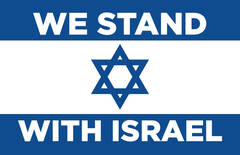- About
- Blogs
- Community
- Events
- Learn
-
Photo Gallery
- Rabbi Weill's 60th Birthday
- Purim Shpiel 2025 Pics
- Purim 2025 Pics
- HH 5785 / 2024 Pics
- Magen David Odam Ambulance Dedication Photos (2024)
-
PAST PURIM SPIELS
- Purim Shpiel 2024 - Ghosts of Purim
- Purim Spiel 2022: Shushan Incorporated (26 photos)
- Purim Spiel 2019: Young Esther Stein (12 photos)
- Purim Spiel 2018: Saving Mordecai (Rehearsal) (81 photos)
- Purim Shpiel 2017: Bye Bye Haman (189 photos)
- Purim Shpiel 2017: Bye Bye Haman (Rehearsal)
- Purim Shpiel 2016: The Queen and I (Rehearsal) (124 photos)
- Purim Shpiel 2015: Li'l Orphan Esther (87 photos)
- Purim Shpiel 2015: Li'l Orphan Esther (Rehearsal) (18 photos)
- Purim Shpiel 2014: PurimTime (70 photos)
- Purim Shpiel 2013: The Book of Esther (27 photos)
- Purim Shpiel 2012: The Trial of Haman (3 photos)
- Purim Shpiel 2011: The Megillah – A Shlock Opera (16 photos)
- Purim Shpiel 2010: The Megillah – A Thrilla' (14 photos)
- Folk and Rock Revue June 2019 (18 photos)
- Sisterhood 2018 Luncheon and Fashion Show (24 photos)
- Sisterhood Ron Balson Author Luncheon (19 photos)
- Sisterhood Chanukah Luncheon (9 photos)
- Kristallnacht 75th Anniversary (13 photos)
- Martin & Henrietta Fox Torah Project (23 photos)
- Sukkah Decorating 2015 (4 photos)
- Resources
- Support
- Worship
They Are Human Beings
06/26/2019 10:19:37 AM
Rabbi Weill
| Author | |
| Date Added | |
| Automatically create summary | |
| Summary |
Dear Friends,
My family and I recently engaged in an interesting conversation about immigrants. It is wrong, my daughter Ruthie asserted, to refer to any human being as illegal.
I suggested to her that the word merely describes reality, that people who come to this country through a porous border have, in fact, acted illegally, as have those who overstay their visas. Illegalsare those who have acted illegally.
Ruthie was unconvinced. And she was right.
The words we use about people color our understanding of them, our beliefs about them. If we call someone “anillegal,” using “illegal” not as an adjective but as a noun, we have defined them as illegal at their essence. They may not have immigrated in legal manner but they are not illegal people. They should not be called illegals.
I made the same point when Prime Minister Netanyahu employed the word mistananim, infiltrators, to refer to the roughly 30,000 refugees from African nations who have settled in Israel. It is a nasty word. Yes, they arrived in Israel and stayed without ever receiving asylum. (Barely 2 percent, by the way, even received the benefit of asylum hearings.) But the word infiltratorspossesses a nefarious ring. It is dehumanizing.
The immigration problem at our southern border is complicated. Many administrations – Democrat and Republican – have tried to solve it, with little success.
As complicated as it is, though, we must never forget that the folks showing up on our southern border – and crossing it – are human beings. They have stories. They have loved ones. They have dreams. They have inestimable worth.
This includes those who make it past the border undetected. It includes those who are in our custody. And it includes those who drown attempting to cross the Rio Grande, like the father and baby daughter who died holding each other this week.
Our tradition is full of admonitions to protect immigrants, and it is replete with stories about them. Ruth – the first convert to Judaism – was a hungry outsider when she crossed the border of the Promised Land, begging for food. It was she, that needy immigrant, who would become the matriarch from whose line the messiah – speedily and in our days! – will be born.
Friends, let us choose our words carefully! All human beings are created b’tzelem Elokim, in the image of God. May our words honor that sacred truth.
L’shalom,
Rabbi Jeffrey Weill
Wed, November 5 2025
14 Cheshvan 5786
LOOKING FOR WAYS TO HELP ISRAEL? CLICK HERE
ALSO:
Brothers For Life – Injured soldiers helping injured soldiers
__________________________
"Unveiling Death"
Podcast by Rabbi Weill
![]() CHECK OUT THE LATEST EPISODE - Kaddish Without God: Death & Mourning in Humanistic Judaism: A Conversation with Rabbi Adam Chalom
CHECK OUT THE LATEST EPISODE - Kaddish Without God: Death & Mourning in Humanistic Judaism: A Conversation with Rabbi Adam Chalom
__________________________

Friday, November 7th
7:30 PM
In-Person & Zoom
__________________________
Our Worship Mishpachah
___________________
SHIRENU/OUR SONG
Join EHNTJC's Congregational Choir! We will sing at services and other special events. Led by Cantor Daniel Gale.
Please contact bill@ehnt.org if you are interested in joining.
__________________________










 Like Us On Facebook
Like Us On Facebook